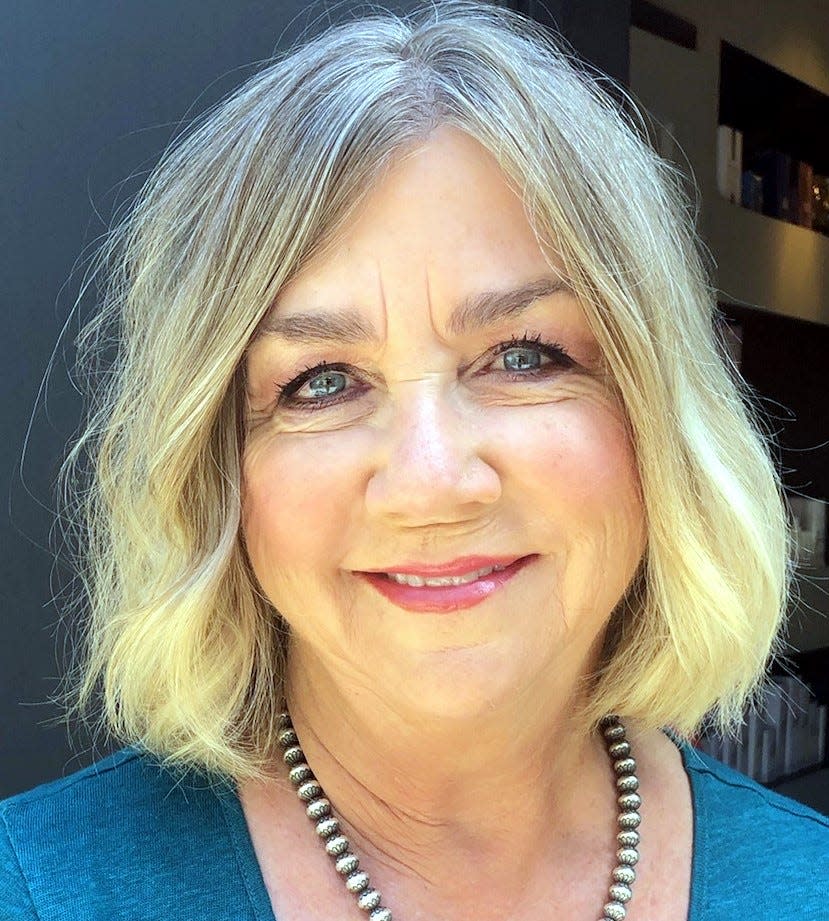Books can help kids - and parents - connect with their feelings
- Oops!Something went wrong.Please try again later.
Recently, I went to see “Are You There God? It’s me, Margaret.” It’s a movie based on a novel of the same name written by Judy Blume.
Blume, now 85, is having a bit of a public resurgence as the movie opens. She had an interview on the PBS News Hour and a lengthy article in The Atlantic Monthly,as well as appearing in other publications.
If you aren’t familiar with Blume, she has long been a trusted guide for kids as their bodies are changing. She explores the impact of divorce, religion, friendships, death and, for heaven’s sake, sex on their lives. Margaret, written in 1970, and another book by Blume, Forever, about teen sexuality and first love (in production for a series), have long been on the list of frequently challenged books, according to the American Library Association.

I didn’t read Judy Blume books, but my daughters and granddaughters read them. The movie gave me an opportunity to see what all the fuss has been about over the years. It is about a 12-year-old girl whose family moves to a new community, and she must make new friends. She is invited to join a club of four classmates, whose requirements revolve around things that happen when girls are 12 – wearing a bra (needed or not), getting their first period, kissing a boy for the first time. Intertwined is the story of Margaret’s parents’ mixed-religion marriage – her mom is Christian, and her dad is Jewish and the impact on Margaret and the extended family. Real life problems.
When I was young, my paternal grandmother had a friend who was an author. Lenore Mattingly Weber. We called her Noni. She wrote a series of books about a young girl named Beany Malone. I read them all. Still have them. They are outdated by today’s standards, but for me, as for readers of Blume’s books over decades, they provided a window into family issues, death, boyfriends, leaving home, getting married. I learned as I wrote this column that much of what happened to fictional Beany and her family happened to grandma’s friend Noni.
The stories of Beany Malone and her family allowed me to ask questions of my own mother. My mom was reluctant to talk about “personal things,” an inherited trait passed down from her reserved, quiet parents. It was these books about a young girl growing up and real life that opened the door to conversation for us.
Blume’s books and the subject matter in such books as Foreverand Are you there God? Is it me Margaret? gave young girls the message that Blume knew what they were feeling. She received thousands of letters weekly soon after the publication of Margaret. Maybe these were from readers who couldn’t talk to their parents?
Books do that for people – Beany, Margaret, Deenie (another Judy character) all helped girls connect with their own anxieties and feelings. Sometimes they helped explain sexuality and sex. And, sometimes, they helped girls connect with their parents in a way that might not have been possible before.
So, it leads to the question: Why are Blume’s books some of the most frequently challenged books on the ALA list? Why are a few loud voices and ambitious politicians trying to ban books at all? I hope to explore that more in depth in a future column.
But as Blume said in a recent interview, “Banning books never stopped me from writing books.” I suspect that banning books won’t keep kids (or anyone) from reading books – especially those books that tell them their feelings are valid and they are not alone.
Read more Corner to Corner:
This article originally appeared on Carlsbad Current-Argus: Books can help kids - and parents - connect with their feelings

